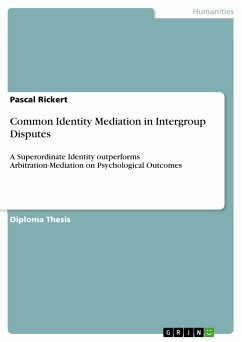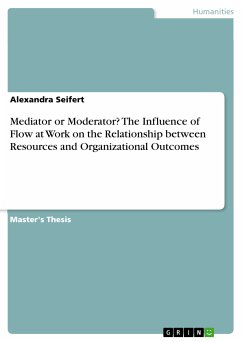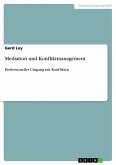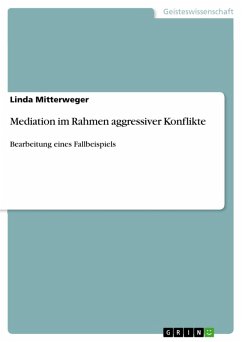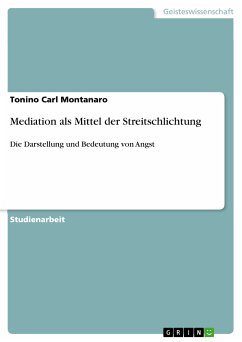Diploma Thesis from the year 2013 in the subject Psychology - Work, Business, Organisation, grade: 1.0, University of Trier, language: English, abstract: The present research intends to explore the effectiveness of Common Identity Mediation (cf. Gaertner, Mann, Murell, & Dovidio, 1989), a third-party intervention procedure especially conducive to facilitate intergroup dispute resolution. We therefore compared Common Identity Mediation to another third-party procedure (i.e., Arbitration-Mediation; cf. McGillicuddy et al. 1987; Ross und Conlon 2000) and an intergroup control condition without third-party assistance. We used a face-to-face, distributive intergroup dispute paradigm including circumstances that elevate the risk for failed third-party interventions (e.g., high emotional involvement of disputants). Results indicate that Common Identity Mediation is as effective as Arbitration-Mediation in reducing the risk of partial impasses and to improve economic outcomes. In addition, Common Identity Mediation shows a slight advantage in boosting psychological outcomes such as feelings of connectivity, shared identity, judgments of counterparts and satisfaction with the arranged settlement. Findings are discussed in light of social identity theory, the Common Ingroup Identity Model, the Ingroup Projection Model and with respect to their practical implications for practitioners. Keywords: inter-group conflict, negotiation, dispute resolution procedure, Common Identity Mediation, Arbitration-Mediation, Common Ingroup Identity Model, Ingroup Projection Model
Dieser Download kann aus rechtlichen Gründen nur mit Rechnungsadresse in A, B, BG, CY, CZ, D, DK, EW, E, FIN, F, GR, HR, H, IRL, I, LT, L, LR, M, NL, PL, P, R, S, SLO, SK ausgeliefert werden.

